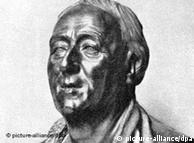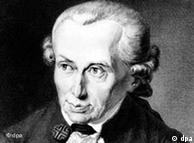History | 16.11.2009
The Encyclopedia of Knowledge - 1751-1780
Over the course of the 17th and 18th centuries, scientists had made discoveries that had usurped the previous body of knowledge. Mankind had discovered the planetary system, learned how to harness hydro power, explored far-away continents, and proved that the Earth was round. Increasingly, it was science - and not religion - that was providing answers to questions about the meaning of life.
The explanations offered by the Catholic Church were becoming outdated. The Church's definition of life was based on the notion that you lived to please God while on Earth, in order to receive your reward in heaven. The gospels and the apostolic interpretation of the Bible had, for centuries, offered people an explanation of the meaning of life that was other-worldly. This was supposed to help them make sense of the injustices of life on Earth.
Knowledge instead of belief
But it wasn't just life's obvious injustices that contributed to the spread of the Enlightenment. The trials of heretics, the Inquisition, and the deep hatred between the followers of different faiths had altogether combined to give religion a bad name. A religion that fostered hate instead of love, and a church that tortured and persecuted people, had little credibility.
 Bildunterschrift: Großansicht des Bildes mit der Bildunterschrift: Denis Diderot worked on the encyclopedia for 30 years
Bildunterschrift: Großansicht des Bildes mit der Bildunterschrift: Denis Diderot worked on the encyclopedia for 30 years
If knowledge, and not religion, was the new maxim, then knowledge, and the theories it produced, needed to be gathered and made accessible to all. Beginning in 1751, French philosophers Denis Diderot (1713 - 1784) and Jean Lerond d'Alembert (1717 - 1783) dedicated themselves to the task. In 30 years of work, they produced their "Encyclopédie" containing all the scientific and philosophical findings of their time.
Liberation from immaturity
Through the accumulation of knowledge and practical education, people were to be enabled with the power of independent thought, thus becoming "mature." Superstition and religious fervour were just as out of place in this ideology as was popular repression under an absolutist regime. The Encyclopedia was a work of enlightenment that would help people out of their "self-imposed immaturity," as German philosopher Immanuel Kant (1724 - 1804) put it.
 Bildunterschrift: Großansicht des Bildes mit der Bildunterschrift: Immanuel Kant
Bildunterschrift: Großansicht des Bildes mit der Bildunterschrift: Immanuel Kant
Citizens made "mature" through knowledge and education - "enlightened" citizens - are entitled to participate in the political decisions of their society. Jean Jacques Rousseau (1712 - 1778) reasoned that such an enlightened citizen would be able to submit to the "social contract" of his society without sacrificing his personal freedom. This "ideal will of the community" ("volonté générale") influenced many 18th century philosophers and the theories of the Enlightenment spread quickly.
In Germany, the works of the French philosophers were devoured by the likes of Immanuel Kant, Johann Gottlieb Fichte (1762 - 1814), and Georg Wilhelm Friedrich Hegel (1770 - 1831). An atmosphere of upheaval began to spread among German intellectuals, who saw themselves as serving the liberation of the individual, as well as the repressed "German nation."
Author: Matthias von Hellfeld (dc)
Editor: Andreas Illmer

Comments